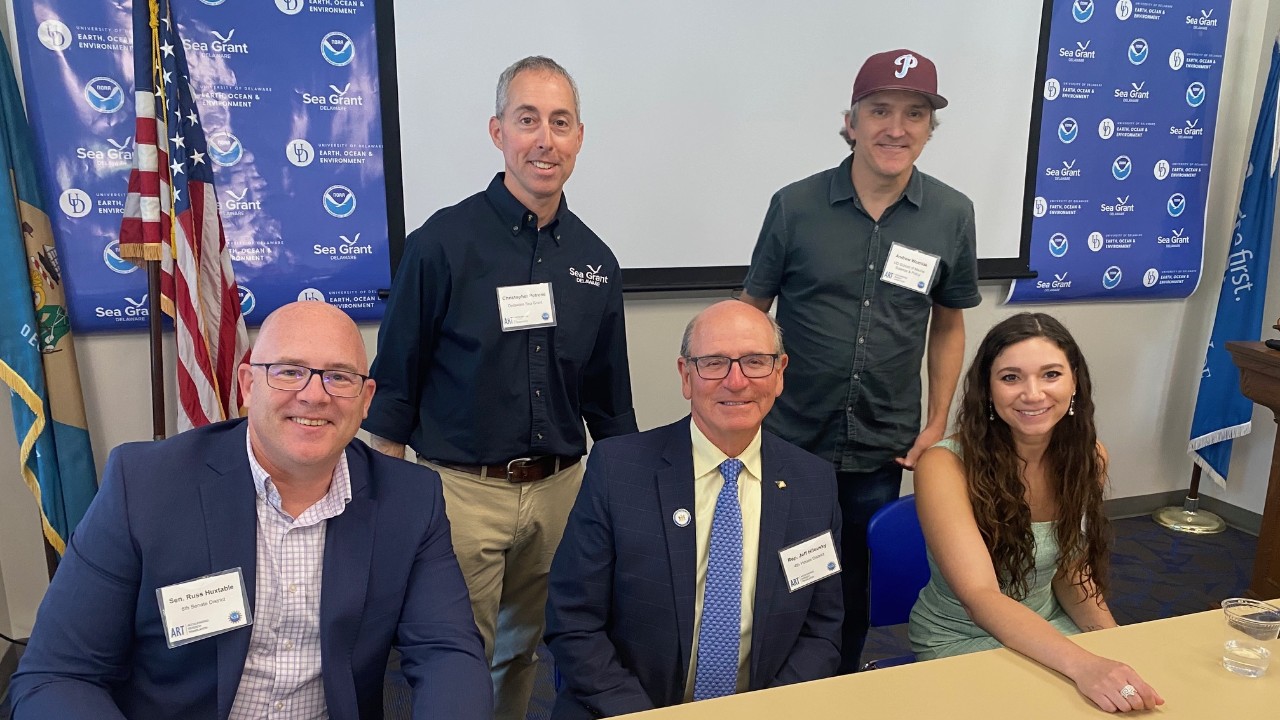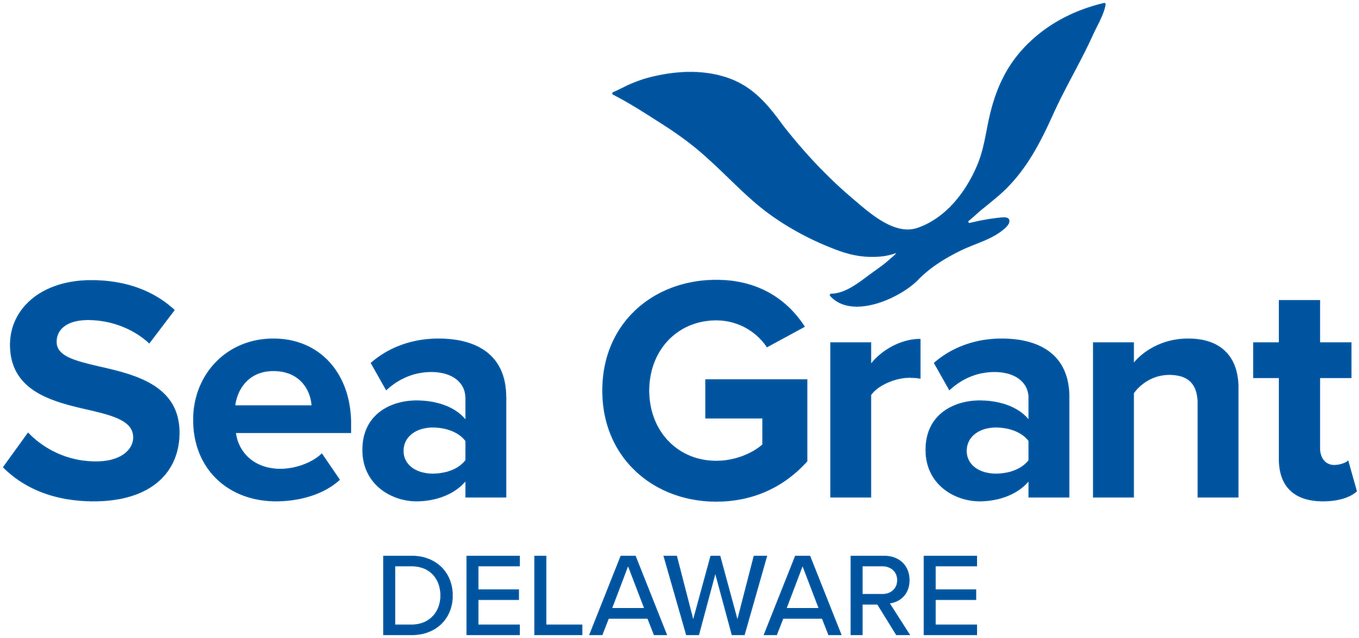
Category: Partnerships

Science communication
July 21, 2025 Written by Adam Thomas | Photo by Chris Yochim, UD/NIMBL
Delaware Sea Grant hosts workshop to help scientists learn how to communicate their research to the public
One of the aims of Delaware Sea Grant at the University of Delaware is to take the latest environmental research and get it into the hands of people out in the community who need it the most. To help accomplish this goal, and to allow for the general population to better understand complicated environmental research, a recent workshop was geared towards helping scientists translate their research into more accessible content for the non-scientific community and other potential users of their data and findings.
Learning these science communication tools and strategies to develop brief, clear explanations of the work being done at UD was the focal point of the two-day Environmental Research Translation Workshop held at UD’s Hugh R. Sharp campus in Lewes.
The workshop was led by Chris Petrone, marine advisory service director for Delaware Sea Grant, and Andrew Wozniak, associate professor of marine science and policy in UD’s College of Earth, Ocean and Environment. It was funded by the National Science Foundation, which came as part of a supplement through the U.S. NSF ART program, a program investing in capacity-building resources that enhance research translation.
“A good portion of UD research is publicly funded,” said Petrone. “So, the better researchers understand how to communicate their research to the public, the more likely it is to get funded and, hopefully, the more support there will be for academic research.”
Participants in the Environmental Research Translation Workshop included graduate students, post-docs, professors, and non-academic field researchers.
Experts from across the University and beyond spoke about the importance of science translation and the best ways to communicate to a general audience.
The first day included presentations from members of the UD Office of Economic Innovation and Partnerships, as well as Salisbury University and the UD Joseph R. Biden Jr. School of Public Policy and Administration.
It culminated with a Delaware State Legislators Panel that included Delaware Representatives Sophie Phillips and Jeff Hilovsky and Senator Russ Huxtable.
Petrone said the panel was eye opening and helped participants better understand how the legislators make their decisions on certain topics.
“As environmental issues come up, we learned how the legislators prepare to talk and discuss these issues, how they prepare to vote for these issues and how scientists can be involved in that process,” said Petrone. “It was outstanding. We got some good feedback on what legislatures need and what resources they are looking for when it comes to scientific topics, which is well-crafted one-pagers that are short, to the point, and explain what the data say.”
Wozniak agreed, saying that as someone who is not directly involved with politics, it was illuminating.
“I understand the concept of calling my representative and letting them know that I support certain topics,” said Wozniak. “But the representatives said they want to hear from people who have information on important scientific and environmental topics that impact policy decisions.”
As a result of the workshop, one of the participants, Ophelia Christoph, a doctoral candidate in the Department of Geological Sciences, was asked to produce a one pager on her work and a few participants were invited to a meeting on oyster aquaculture.
On the second day of the workshop, Beth Miller and Karen Roberts, science writers in UD’s Office of Communications and Marketing, shared best practices for effectively communicating complex research to public audiences.
There was also a career panel of professionals from a broad spectrum of environmental careers.
Petrone and Wozniak both said this was beneficial for the students in attendance as they got to see a broad array of career options afforded to those in the environmental science field.
“We’re hoping with career panels at future workshops to expose participants to even more out of the box jobs,” said Wozniak. “For example, banks and the insurance industries are interested in people that can interpret climate change and sea level rise and what the threats are to the economic systems. One of our goals is to expose people to those kinds of jobs and get students to think about new ways to apply their work.”
About the ART program
At UD, the ART program is spearheaded by PI Jill Higginson, George W. Laird Professor of Mechanical Engineering in UD’s College of Engineering and director of UD’s Institute of Engineering Driven Health (IEDH).
Co-PIs include Julius Korley, associate vice president of UD’s Office of Economic Innovation and Partnerships (OEIP) and co-director of the NSF I-Corps Hub: Northeast Region, Tracy Shickel, associate vice president of corporate engagement, and Dan Freeman, associate professor of marketing in the Alfred Lerner College of Business and Economics and director of Horn Entrepreneurship.




